During a recent interview with a nun, it was by chance I discovered that Sister Laurencia was born to a Muslim mother and whose father’s faith was categorised as “other faiths” in Indonesia.
Having grown up in a society that is increasingly bigoted along racial lines, I could not imagine our neighbouring country to be so liberal.
In Indonesia, there is no forced conversion into Islam and no law forbidding proselytising. Married interfaith couples can cohabit while practising their respective religions, without fearing peeping Toms waiting to haul them to the syariah court.
Despite not adopting the precautions Malaysia has put in place, Indonesia is able to remain the country with the largest Muslim population in the world that resents racial or religious politicking.
However, things were not the same more than five years ago.
A politician who kept his word
The last time religious politicking flared uncontrollably in Indonesia was in 2016, when Islamist-inspired political protests led to the jailing of the former governor of Jakarta, Basuki Tjahaja Purnama - popularly known as Ahok but who now wants to be called BTP.
Among the hardline Muslim groups responsible for the amplified identity politicking and religious fear-mongering during the 2017 run-up to the gubernatorial election was the Islamic Defenders’ Front (FPI), which had been campaigning against Basuki since he first took office in 2012.
FPI and other hardline Muslim groups peddled anti-Chinese and anti-non-Muslim rhetoric that was circulated widely on social media.
Basuki was harshly sentenced to 20 months in jail for blasphemy and was released early on good behaviour in 2019.
Meanwhile, Indonesia’s President Joko Widodo (Jokowi) kept the promise, he made in 2017, to “clobber” any group threatening to destroy the country’s treasured tradition of pluralism and moderate Islam.
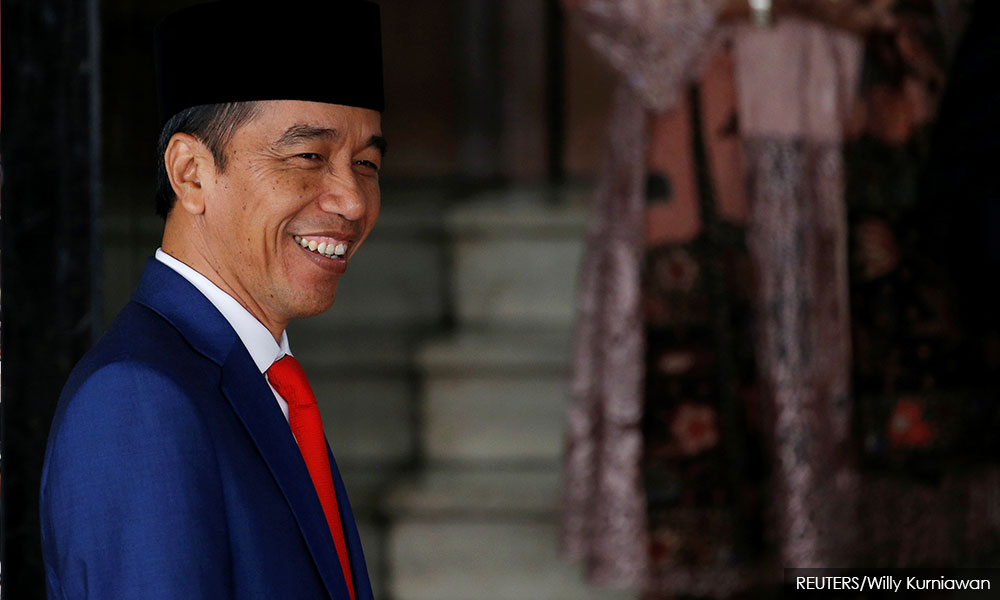
The FPI was outlawed in 2020 and its leader Rizieq Shihab was jailed in 2021 for spreading false information about Covid-19.
This year, the outlawed FPI’s former secretary-general Munarman, who has been accused of rallying support for the terror group, Islamic State, was sentenced to three years in jail for consciously aiding terrorist actors by concealing information on terrorist acts.
Seven years have passed since 200,000 Indonesians marched in Jakarta and other cities in the country protesting allegations that Basuki had been insulting Islam.
The event served as a lesson for the urgent need to curb extremism - one that Jokowi took seriously.
He dealt with those fanning the flames of hatred and went one step further by constructing a tunnel of friendship that connects two places of worship, in the middle of bustling Jakarta, which also serves to address parking woes in both premises.
The state-of-the-art underground tunnel that connects the largest mosque in Southeast Asia, the Istiqlal Mosque, and the St Mary of the Assumption Cathedral across the road, was dubbed “silaturahmi tunnel” by Jokowi.
Silaturahmi is an Islamic term that means brotherhood.
Muhyiddin reverts to type
But unfortunately, in Malaysia, it is the very people who are supposed to be protecting the nation, especially the minorities from religious bigotry, are the very people who foment hatred in the country.
This was frighteningly evident in the content of campaign speeches in the lead-up to the 15th general election (GE15) that took place on Nov 19.
One speech that sent ripples of anger across the country was when Perikatan Nasional chairperson Muhyiddin Yassin alleged the attempted “Christianisation of a country” with a sense of foreboding.
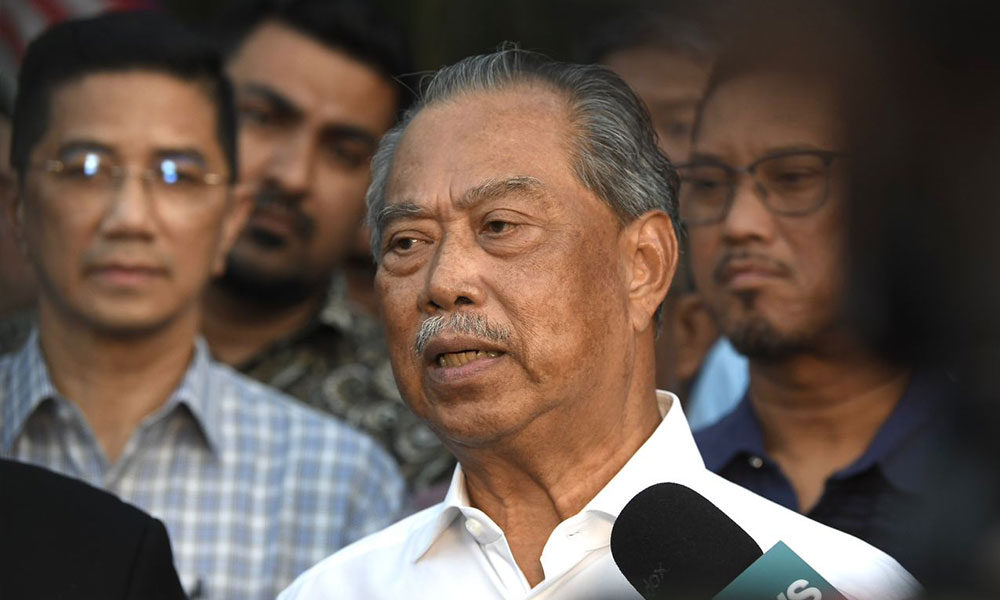
Muhyiddin, a former prime minister, later claimed his speech was taken out of context but he never attempted to clarify the contentious parts. He could not have been talking about the stability of a multi-racial nation of varying faith.
He also did not offer proof that the opposition coalition, Pakatan Harapan, was working with Jews and Christians to colonise the country when it was in government - as he had alleged.
Muhyiddin, a career politician who had served as minister of various ministries since 1995, was dishing out falsehoods as conceivable hearsay and had his electorate eating out of his hands.
He fell to the usual practice of unsubstantiated denials, typical of Malaysian politicians that usually entail feeble claims of either (1) their words were taken out of context and (2) they were vilified by the opposition.
Why would a responsible, dignified and strong leader even have to talk about the imminent threat upon the dominant religion in the country in his election campaign speech if not to instil fear in the Malay-Muslim electorate that the country was threatened by Christians and Jews taking over its already plundered coffers?
Was the 75-year-old gripped with the insecurity of losing that he would risk disqualification by peddling hate speech in order to sway the electorate in his favour?
Unfortunately, what’s more disturbing is that Malaysia has become a nation where the majority Malay race can so easily be swayed into fearing the minorities, despite having laws in place that provide sufficient protection against proselytising Muslims.
Muhyiddin won the Pagoh parliamentary constituency by 10,000 votes and will serve his seventh term there.
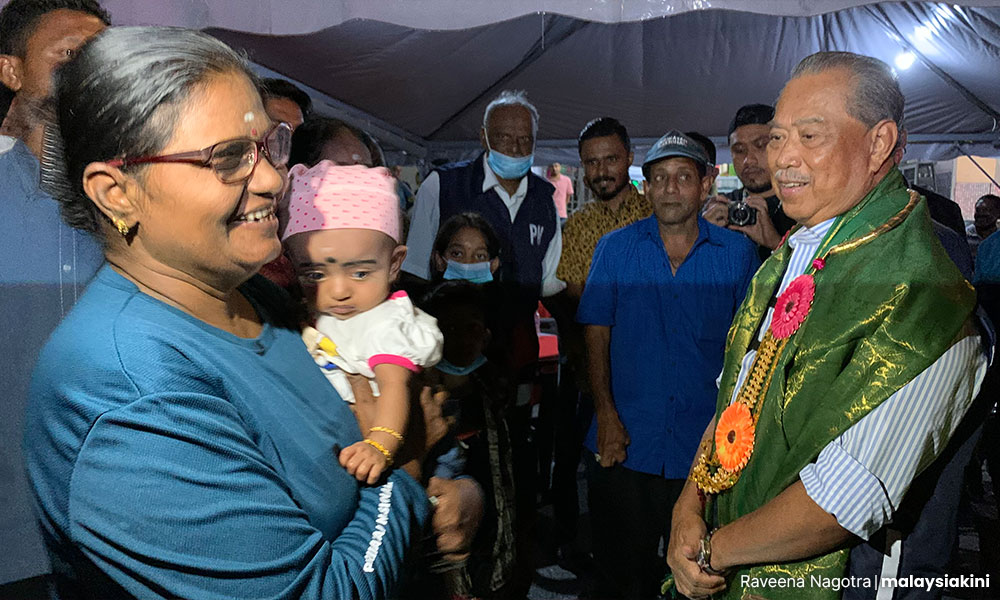
However, his victory is contentious and PKR deputy president Rafizi Ramli has threatened to file an election petition against the prime ministerial candidate for PN, which could lead to Muhyiddin having to vacate the seat.
It also begs the question of the calibre of the prime ministerial candidate that was put forward by the PN coalition and if inclusivity and racial harmony were considerations for him and the component parties.
Islamic extremists loom over the electorate
Similarly, PAS has been peddling hatred on social media, with their attention honed in on the DAP.
DAP is a component party of the strongest coalition, Harapan which garnered the highest number of seats (82 seats) in GE15, although not enough to form the government with a simple majority.
Meanwhile, PAS is a component party of Muhyiddin’s PN coalition of parties that also includes Gerakan, a liberal political party for which the primary source of support comes from the country’s ethnic Chinese.
In GE15, DAP was PAS’s biggest threat, winning 40 parliamentary seats, coming in a close second to PAS’ 44.
The party has constantly been targeted with anti-Chinese sentiments and hateful labelling as being supporters of communists.
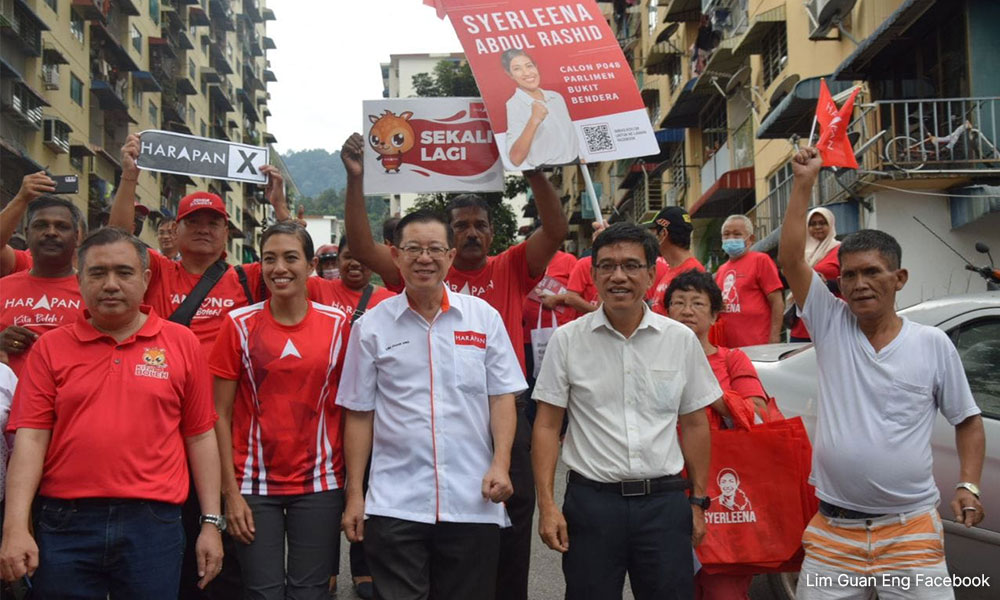
Meanwhile, the real communists - the Communist Party of China - are already in the country, setting up businesses, trading with Malaysian state and federal governments, constructing the LRT3 project and exporting river sand and other minerals back to China for its construction industry.
The Communist Party of China is celebrated by all the former prime ministers and even more so by caretaker minister Hishammuddin Hussein, who, on a 2021 trip to China as the foreign minister, said that the communist nation will always be “Malaysia’s older brother”.
This noted hypocrisy is camouflaged with racial and religious rhetoric that keeps the electorate preoccupied with the fear of the minorities who, by some miracle according to PAS, are able to deprive the Malays of their religion and prosperity that is rightfully theirs.
In the days that followed the inconclusive GE15 results, social media was flooded with dangerous posts inciting racial hatred while Harapan chairperson Anwar Ibrahim negotiated with BN to possibly form the federal government.
These tactics to sway new voters are causes for concern, especially when a local actor boasted at a PAS event how he would happily slaughter kafir harbi if not for the laws that prohibit him from doing so.
A turning point for Malaysia
Today (Nov 23) is the fourth day after GE15. Malaysia is still without a government but the Yang di-Pertuan Agong has given the Harapan coalition the opportunity to form a government that is inclusive.
In the days following the elections, when Harapan appeared to be negotiating with BN, Anwar was clear that he would not interfere with court cases but what caused the negotiations to stall is still not clear.
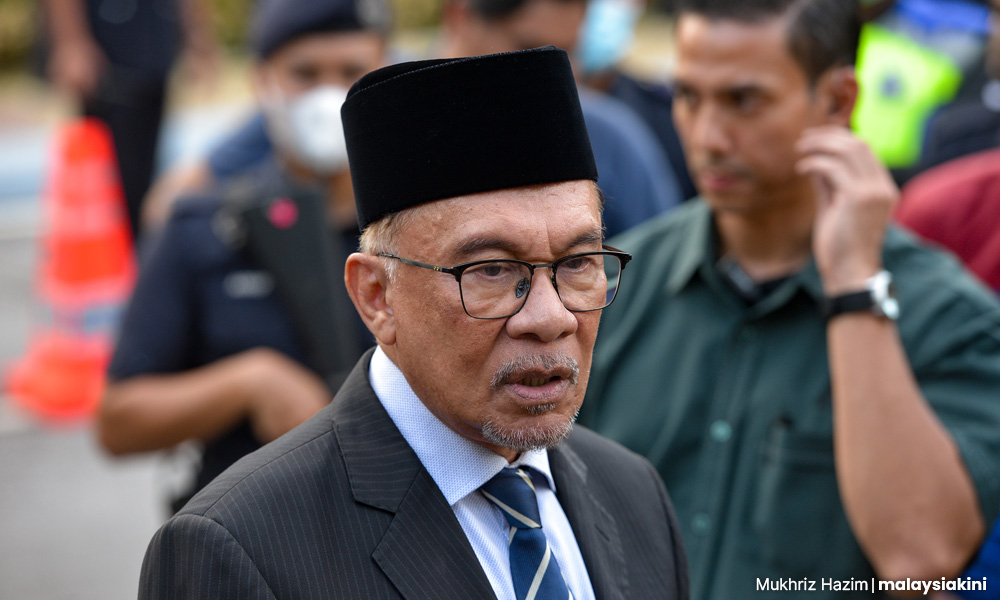
Harapan has 82 seats in Dewan Rakyat but needs at least 112 seats to form a government.
While Harapan has formed the state government with BN in Perak, the country needs a stable federal government to forge ahead without being derailed over and over again - just like what had happened in the past two years.
Although Harapan has expressed its willingness to sit down and negotiate with any coalition or party wanting to join it for a stronger presence in government, a pact with the PN coalition may well be out of the question where PAS, as the party with the highest number of seats in that coalition, was dictating the terms.
More importantly, in order for Malaysia to ride out the impending waves of inflation and climate disasters, the country needs a leadership that does not resort to cowardly tugging at racial disharmony or governing with undertones of religious bigotry nipping at the seams of the fabric of this society. - Mkini
S VINOTHAA is a member of the Malaysiakini Team.
The views expressed here are those of the author/contributor and do not necessarily represent the views of MMKtT.



No comments:
Post a Comment
Note: Only a member of this blog may post a comment.